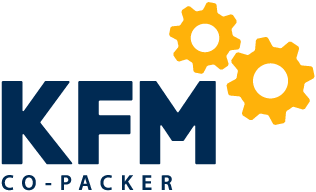A new gene therapy valued at $2.1 million (£1.6 million) that’s been developed by Novartis has been approved the US regulators.
Novartis has developed the one-time treatment for babies with spinal muscular atrophy (SMA), which is described as the leading genetic cause of death in infants.
Around one in every 10,000 live births are affected by SMA, which leads to complications including breathing difficulties, paralysis and death within months for the children born with the most serious type 1 form of the disease, the Guardian reported.
Most babies born with SMA don’t live beyond two years old, the news provider added. But Novartis’ gene therapy Zolgensma is set to change this.
The Food and Drug Administration (FDA) has now approved the treatment for use in children under two with SMA, including those who are not yet displaying symptoms. Chief executive at Novartis Vas Narasimhan has described Zolgensma as a “near-cure” for SMA if it is delivered soon after birth.
The high price tag of the therapy has received some criticism, although the pharmaceutical firm argues that it’s more cost-effective than the other treatment for SMA, which provides regular treatments priced at several hundred thousand dollars a year.
Spinraza, which was developed by Biogen, was the first treatment for SMA. The initial treatment is priced at $750,000, with those with SMA needing to undergo an infusion into the spinal canal every four months at an annual cost of $375,000.
Zolgensma, on the other hand, works by using a virus to deliver a normal copy of the SMN1 gene to babies born with SMA. It’s this gene that’s defective and causes the condition. The therapy is delivered by infusion.
Despite being expensive for a single treatment, this valuation is lower than that previously estimated by the firm. Initially, it estimated its value at $5 million per patient, a figure that the independent Institute for Clinical and Economic Review (Icer) described as “excessive”.
So far, Novartis has treated around 150 patients with Zolgensma, with data proving its durability currently extending to five years. The company has also applied to European and Japanese regulators for approval, which is expected to be granted later this year.
Dr Emmanuelle Tiongson, a paediatric neurologist who has provided Zolgensma to patients under an extended access scheme, described it as “potentially a new standard of care for babies with the most serious form of SMA”.
Speaking to Sky News, he added: “The job now is trying to negotiate with insurers that this would be long-term savings.”
According to the NHS, there are four types of SMA. Type 1 is the most severe and babies born with this rarely survive beyond two. Type 2 is less severe and symptoms typically appear in children aged seven to 18 months. Type 3 appears once children are over 18 months old and don’t usually affect their life expectancy.
Type 4 SMA affects adults and typically only causes mild problems. It’s type 1 SMA that the Novartis treatment targets.
Of course, with the high price tag it will have to be deemed cost-effective by UK regulators before it is made available on the NHS.
If you need assistance with pharmaceutical validation services, contact us to find out more about our expertise.

